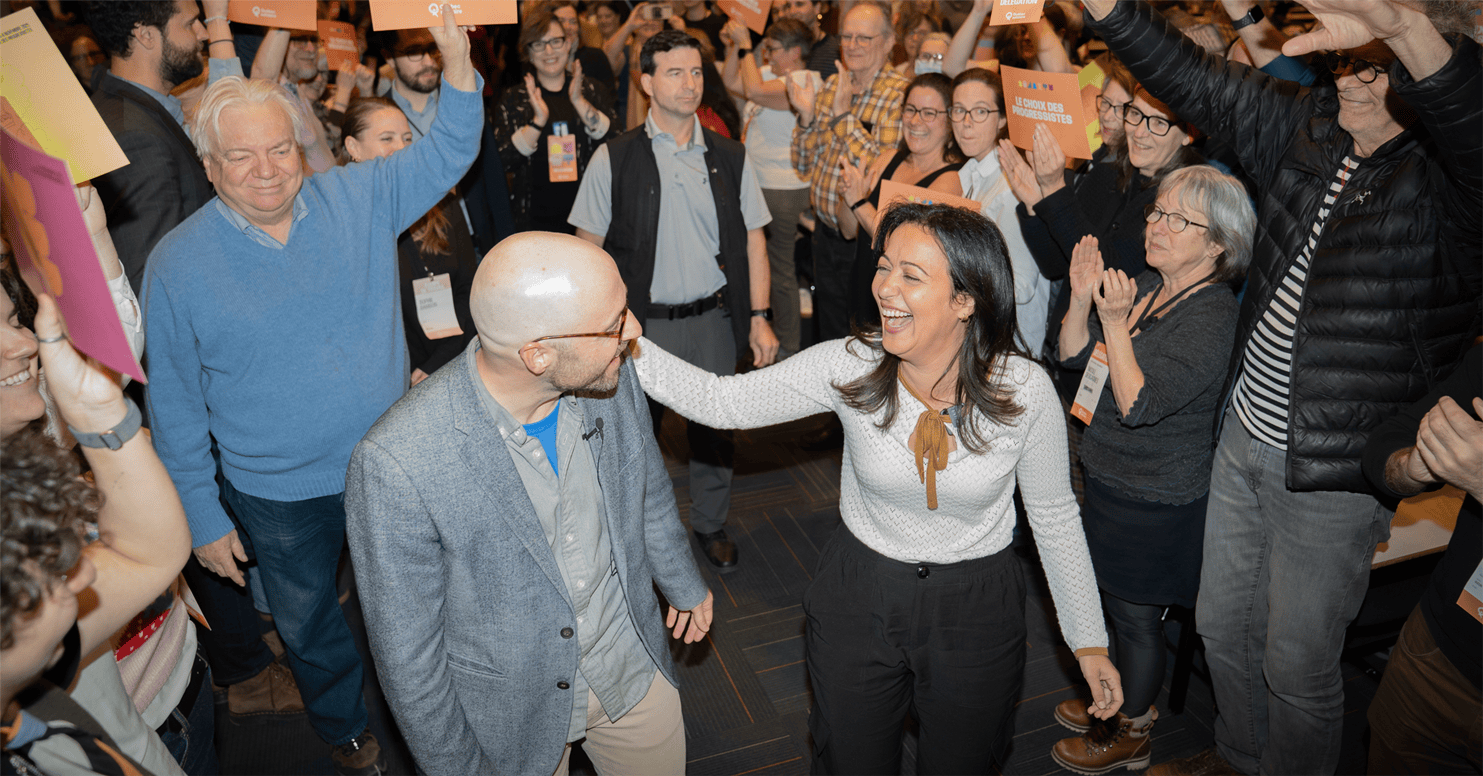Remarks delivered at the Group of 78 Annual Policy Conference, Ottawa, Sep. 27, 2019 by Ed Broadbent, Chair of the Broadbent Institute.
It is my pleasure tonight to make some introductory comments to this conference and in particular to introduce Robert Kuttner, a distinguished academic and journalist who is one of America’s leading public intellectuals.
In American terms he is a small l liberal, very much rooted in the New Deal Democratic tradition. In Canadian terms, he is a strong, principled social democrat and has consistently been such over a long career.
He published a long article in the Atlantic in 1983 entitled, The Declining Middle, which presciently warned of rising inequality in the United States at the start of the Reagan era, and the resulting threat to democratic institutions and values. In 1984 he wrote a major book, The Economic Illusion, which attacked the false idea of the right that we have to choose between prosperity and greater equality and social justice.
Last year he published and important new book, Can Democracy Survive Global Capitalism?, which speaks very directly to the aims and purposes of this important conference.
In his discussion of the signs of failure in current democratic societies I want to emphasize how persistently Professor Kuttner gives as examples, whether in the US, Britain or Germany, the economic impacts of globalization on the many or the poor. In this I note a significant departure from today’s mainstream political scientists world-wide who see democracy virtually exclusively in terms of political and civil rights. In departing from this he also joins a much older democratic tradition dating from Athenian democracy. This tradition, stretching from Plato and Aristotle (who opposed democracy to John Stuart Mill (who favored it), saw democracy as a system of government that favoured the many and the poor.
This view of democracy is best intimated in Abraham Lincoln’s pithy “Government of the people, by the people and for the people”. I would argue that in many ways it was the strong action of classical social democracy that retrieved this democratic tradition in mid-twentieth century Europe and Canada. They did this by their implementation of social and economic rights on top of existing liberal democratic freedoms. By decommodifying health services, pensions, the right to unions, and other social services, they showed that with political will in these aspects of life the power of the market could be and should be broken if real democracy is to be achieved.
In the U.S., Franklin Roosevelt should be added to the social democratic list of Willy Brandt, Olaf Palme, Bruno Kreisky and Tommy Douglas. In his last address to Congress, Roosevelt explicitly said that the American Bill of Rights was insufficient if democracy is to be achieved. He was and remains the only US President to say this. An Economic Bill of Rights he stressed, needed to be added. His proposed bill included a list of social and economic rights that came to characterize social democracy in the mid-twentieth century in other countries. His proposed Bill was of course, ignored by a post-war Republican Congress and was not brought forward by any subsequent president. Currently such rights are to be found in the political agendas of Elizabeth Warren and Bernie Sanders.
I and no doubt almost all of you share Robert Kuttner’s central concern that globalization in its current form has come to pose a major threat to democracy. Rising inequality and stagnant living standards for working people, combined with the weakening of the labour movement as an economic and political force, have fed the rise of the anti democratic populist right. The key alternative is to build a renewed left which embraces markets but is prepared to closely regulate them in the public interest so as to build a much more equal democratic society.
I strongly agree with one key theme and argument of Professor Kuttner’s – namely that the rise of inequality and insecurity following the dismantling of the New Deal bargain in the United States and elsewhere, was essentially a political choice – not the inevitable product of globalization and technological change. To the contrary, corporate and political elites actively pursued a particular form of globalization which led to the destruction of thousands of jobs, the decline of unions as an economic and political force and increased the economic and political power of corporate elites. This loss of social and economic benefits for working class Americans while the rich became even richer this has led to the right-wing populism of Donald Trump which threatens political and civil rights.
I also strongly agree with Professor Kuttner that the centre left was, to an uncomfortable degree, complicit in this shift to the right. In the United States, many Democrats, notably Bill Clinton, embraced the so-called free market agenda, and alienated their traditional working-class base, which then shifted to the right. This was also true of Blair in Britain and Schroeder in Germany who undermined unions and labour rights and embraced the dominance of markets. As Margaret Thatcher once boasted, her major accomplishment was the conversion of Tony Blair to the view that “there is no alternative” to neo liberal policies.
I want to briefly register the fact that the political trajectory in Canada has been somewhat different than in the United States. The shift to social democracy in Canada came more in the 1960s and 1970s than in the immediate post War period, and unions and social democracy in the form of the NDP remained much stronger than in the United States. The key shift to the right in Canada at the federal level came in the mid 1990s when the Liberals attacked labour and the welfare state in the name of deficit reduction, ignoring viable alternative policies.
The Chretien government’s 1995 budget was the biggest cut in social spending since WWII.
While I am very much aware of the political threat of right-wing populism, many, perhaps most, Canadians still adhere to social democratic values and are open to a form of left-wing populism, a populism that embraces civil liberties but attacks forcefully our deep inequality.
In his new book, Professor Kuttner persuasively argues that there is no global government, and that democracy must necessarily be defended and restored primarily at the national level. As he notes, most international institutions, such as the IMF, and including the European Union, have generally pursued pro-market rather than egalitarian and democratic goals. He and one-time globalist Dani Rodrik and Joseph Stiglitz argue that when there is a clash with domestic political traditions, in a conflict with international rules of trade, local preferences should prevail.
As part of a new progressive agenda, Professor Kuttner stresses the need to give governments this greater control over national economic policies. He also notes that co-ordinated progressive action will be needed to shut down tax havens and to reform the global financial system. I would also add that we also absolutely need co-ordinated global action to deal with catastrophic climate change and to promote democratic and trade union rights in all countries.
I believe Bob Kuttner is right that the constraints of globalization on domestic progressive policies tend to be exaggerated and that political will can make a huge difference. That said, the issue is more challenging for a small country like Canada than a major economic power such as the United States. This will no doubt be reflected in our discussions.
I very much look forward to hearing what Professor Kuttner has to say and am delighted that he will be able to stay with us to discuss the hugely important issues which he has raised.





